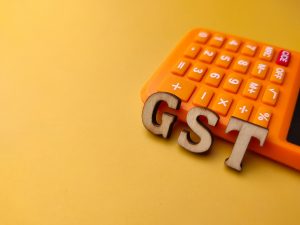
A key architect of India’s tax reforms and the chairman of the Thirteenth Finance Commission Vijay Kelkar has called upon the country’s next government to undertake urgent reforms in the “unnecessarily complex” Goods and Services Tax (GST) regime, such as switching to a single tax rate of 12% and sharing revenues with local governments and municipal corporations.
Mr. Kelkar has also mooted the creation of an independent secretariat for the GST Council, the apex-decision making body for the indirect tax rolled out in July 2017, as the current arrangement of the Union Government driving the secretariat may be considered problematic by States.
He termed the simplification of the GST structure, which has a “plethora of rates” and a compensation cess on some goods, as a “critically important fiscal reform” to take the GST regime to its most natural destination. Setting the tax rates “largely with the objective to maintain revenue neutrality”, as done by India, is “counter-productive”, Mr. Kelkar argued.
Single GST rate needed
“The genesis of the current GST frauds lies in the very structure of the GST rates, as high rates of GST make it lucrative for the fraudsters to evade taxes,” he stressed after receiving the TIOL Fiscal Award late Saturday. Instead, he suggested that a single GST rate of 12%, with revenues shared equally with all the tiers of the government and Union Territories, be introduced at the earliest.
“In most of the developed and emerging market economies as well, there is a policy of single GST or VAT [Value Added Tax] rate on goods and services. The countries having a single rate and simple GST or VAT laws have been successful in optimising tax revenue and minimising tax disputes,” the former Finance Secretary noted. Of countries with GST or VAT systems, 80% have opted for a single tax rate, including Singapore, New Zealand, the United Arab Emirates, and Japan.
Stating that a single GST rate is “an unmet goal” in India, he recalled that a single rate of 12% had been recommended by the 13th Finance Commission “very early on in the GST debate”. It would simplify the structure, quell almost all classification issues, and help promote manufacturing and exports, he said.
“The age-old tax policy of having a differential tax rate for ‘must have’ and ‘nice to have’ goods and services should be done away with. The revolutionary reform of introduction of a single GST rate, with additional non-VAT-able taxes such as carbon taxes on a few demerit goods like hydrocarbons, is now essential,” Mr. Kelkar asserted.
‘Share GST with local bodies’
While the Union Finance Ministry providing support to the GST Council during its formative decade is “understandable”, Mr. Kelkar cautioned that it is possible that State Governments, who are also members of the GST Council with equal rights, may not always feel that the present administrative arrangement is neutral and unbiased in terms of its support or the advice it offers to the GST Council.
The veteran economist also pleaded for GST revenues to be shared with the third tier of the government created by the 73rd and 74th Amendments to the Constitution.
“Unfortunately, our urban local bodies are woefully short of the needed fiscal base to undertake investments for vital infrastructure and for the supplies of needed high quality public goods. Equitable sharing of the GST with the third tier will go a long way in strengthening the fiscal base of our urban governments and also to deepen democracy and governance at the grass root level,” Mr. Kelkar said, noting that this is prevalent in vibrant democracies across the world.
“To enable this, we will require a Constitutional amendment, firstly to create the consolidated fund for the third tier of government; and secondly, GST reforms, where GST will be shared equitably by the Centre, State, and the local governments such as municipal corporations. This is only fair and appropriate, as GST is a consumption tax and taxpayers should see direct benefits accruing from their payment of the taxes,” he underlined. Such an arrangement, he noted, would also bolster the quality of governance provided by local governments as citizens’ demand for quality public goods will grow louder.
Source: The Hindu


